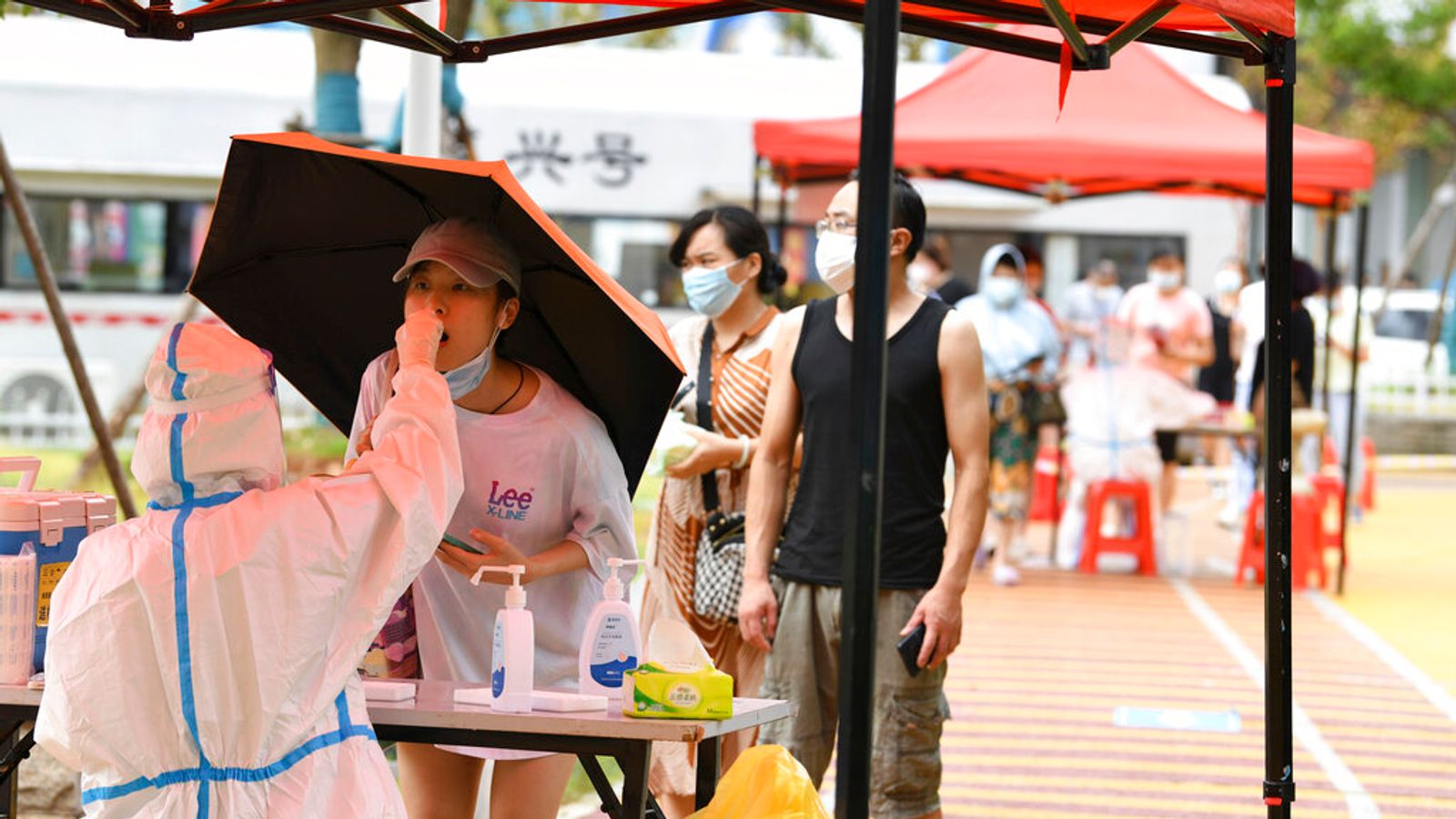Authorities in China have apologised after raiding the houses of those who had been forced to go into quarantine hotels in an effort to find ‘close contacts’ who might be hiding.
It comes after around 2,000 people were told to extend their stay at a holiday resort in the country after more than 500 cases of the virus were found.
The moves are part of the country’s hard-line approach to fighting COVID-19, focussing on its controversial zero-COVID approach, which includes strict quarantines and almost constant testing.
Some 84 homes were broken into by authorities in the city of Guangzhou so they could hunt for people attempting to evade quarantine, and to disinfect the properties, local media reported.
The doors were later resealed and new locks installed.
The government in the Liwan district of the mega-city apologised for its “oversimplified and violent” behaviour, the Global Times newspaper said, adding that an investigation had been launched and that the “relevant people” will be severely punished.
Meanwhile, in the tourist resort or Beihai in the south of the country, around 2,000 visitors were forced to extend their stays after 500 people tested positive for COVID-19, meaning they were banned from leaving.
NHS must ‘redouble’ efforts to vaccinate hard-to-reach communities as cases rise, MPs warn
COVID-19: Autumn booster and flu jab to be extended to over 50s to reduce hospital admissions
COVID infections rise 29% as 3.5 million people estimated to have virus in UK
The local government was said to be struggling to find hotel rooms for those now needing to stay, while accommodation and airlines were offering refunds for people due to visit the area.
There have been several cases documented on social media in the carefully-controlled country, with people reporting their keys being taken from them, broken down doors, and steel barriers erected to prevent them from leaving their homes – often when people had tested negative.
The strict protocols are part of the wider control over the population exerted by the Chinese Communist Party, which controls law enforcement and the media.
Some cities have spent months in ruthless lockdowns over the last year, with some limiting access to food and healthcare – particularly in Shanghai.
A plan to only allow vaccinated people into public spaces in Beijing was reversed last week after it faced backlash from residents in the city, who branded it unfair to those who had not yet had their jabs.
Despite all this, transmission remains low in mainland China, with the National Health Commission reporting 699 cases of domestic transmission in the last 24 hours – most of which were asymptomatic.












